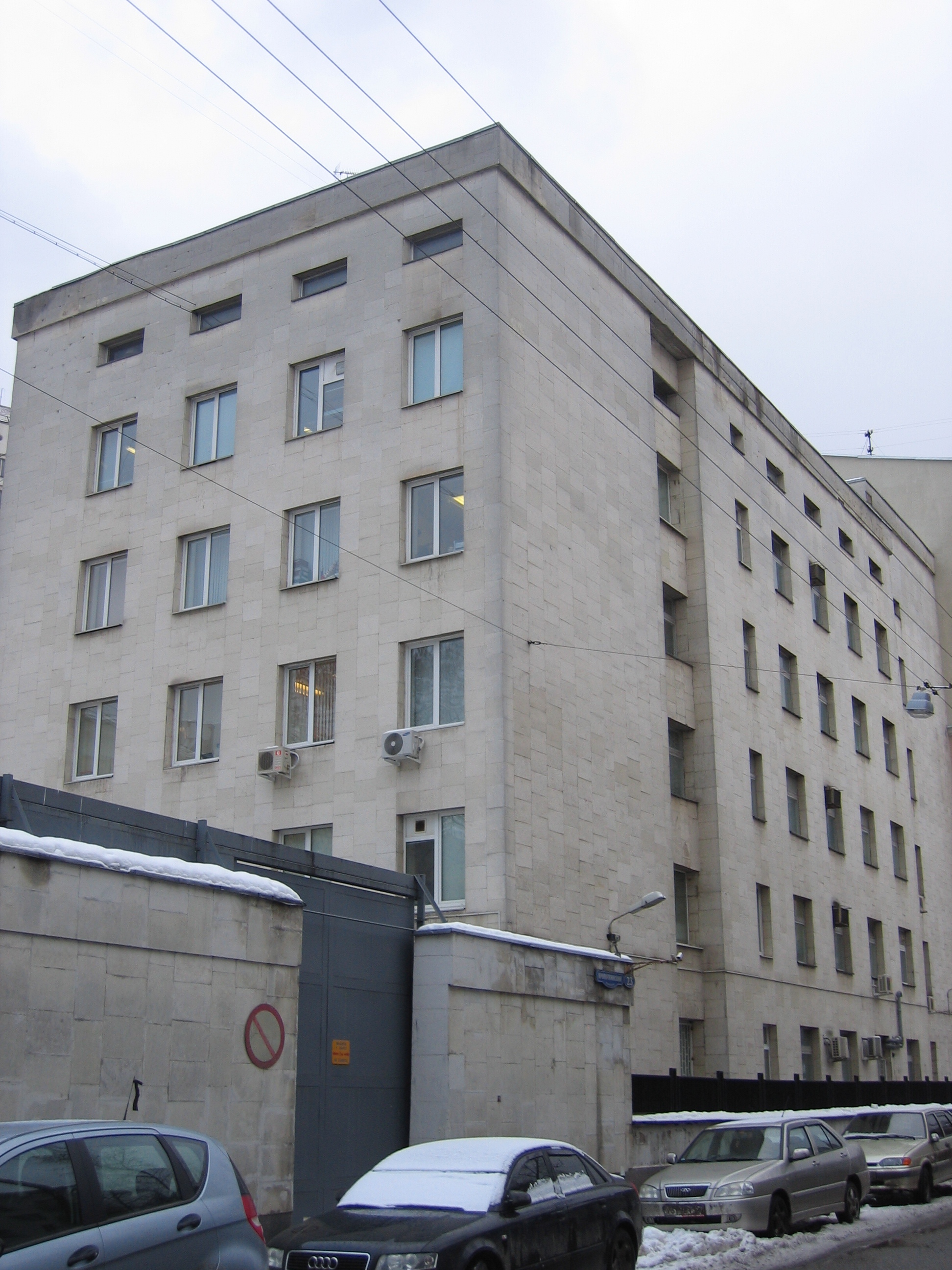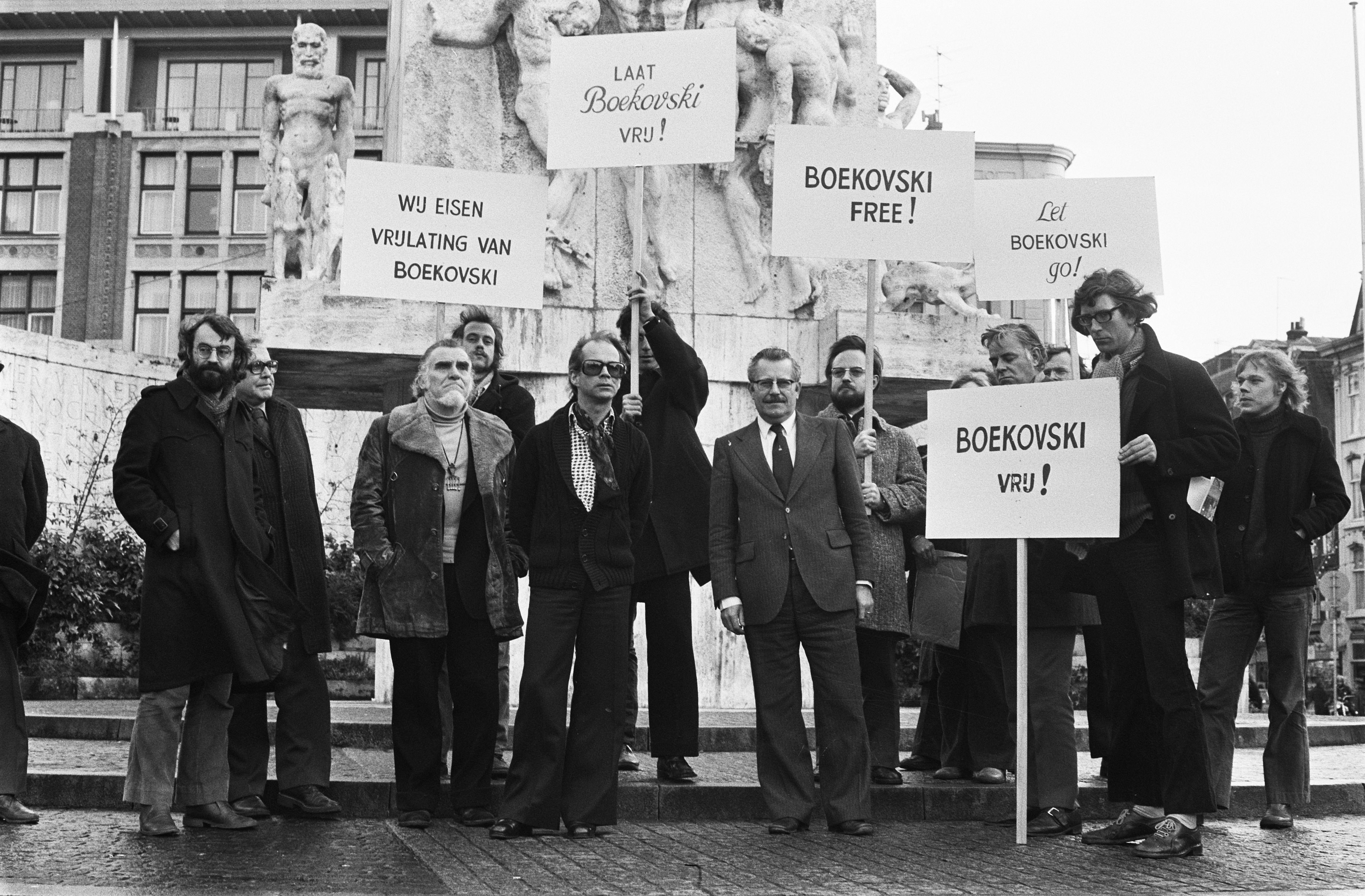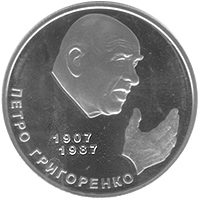|
Psikhushka
Psikhushka (; ) is a Russian ironic diminutive for psychiatric hospital. In Russia, the word entered everyday vocabulary. This word has been occasionally used in English, since the Soviet dissident movement and diaspora community in the West used the term. In the Soviet Union, psychiatric hospitals were often used by the authorities as prisons, in order to isolate political prisoners from the rest of society, discredit their ideas, and break them physically and mentally. As such, psikhushkas were considered a form of torture. The official explanation was that no sane person would be against socialism. Psikhushkas were already in use by the end of the 1940s (see Alexander Esenin-Volpin), continuing into the Khrushchev Thaw period of the 1960s. On April 29, 1969, the head of the KGB, Yuri Andropov submitted to the Central Committee of CPSU a plan for the creation of a network of specialized "psychiatric hospitals" run by the KGB. The official Soviet psychiatric science came up ... [...More Info...] [...Related Items...] OR: [Wikipedia] [Google] [Baidu] |
Political Abuse Of Psychiatry In The Soviet Union
There was systematic political abuse of psychiatry in the Soviet Union, based on the interpretation of political opposition or dissent as a psychiatric problem. It was called "psychopathological mechanisms" of dissent. During the leadership of General Secretary Leonid Brezhnev, psychiatry was used to disable and remove from society political opponents ( Soviet dissidents) who openly expressed beliefs that contradicted the official dogma. The term "philosophical intoxication", for instance, was widely applied to the mental disorders diagnosed when people disagreed with the country's Communist leaders and, by referring to the writings of the Founding Fathers of Marxism–Leninism—Karl Marx, Friedrich Engels, and Vladimir Lenin—made them the target of criticism. Another common pseudo-diagnosis was " sluggish schizophrenia". Article 58-10 of the Stalin-era Criminal Code, " Anti-Soviet agitation", was to a considerable degree preserved in the new 1958 Russian Soviet Fede ... [...More Info...] [...Related Items...] OR: [Wikipedia] [Google] [Baidu] |
Vladimir Bukovsky
Vladimir Konstantinovich Bukovsky (; 30 December 1942 – 27 October 2019) was a Soviet and Russian Human rights activists, human rights activist and writer. From the late 1950s to the mid-1970s, he was a prominent figure in the Soviet dissidents, Soviet dissident movement, well known at home and abroad. He spent a total of twelve years in the Political abuse of psychiatry in the Soviet Union, psychiatric prison-hospitals, Gulag, labour camps, and prisons of the Soviet Union during History of the Soviet Union (1964–1982), Brezhnev's rule. After being expelled from the Soviet Union in late 1976, Bukovsky remained in Soviet dissidents, vocal opposition to the Politics of the Soviet Union, Soviet system and the shortcomings of its Politics of Russia, successor regimes in Russia. An activist, a writer, Jacket and a neurophysiologist,. he is celebrated for his part in the campaign to expose and halt the political abuse of psychiatry in the Soviet Union. A member of the internati ... [...More Info...] [...Related Items...] OR: [Wikipedia] [Google] [Baidu] |
Soviet Dissident
Soviet dissidents were people who disagreed with certain features of Soviet ideology or with its entirety and who were willing to speak out against them. The term ''dissident'' was used in the Soviet Union (USSR) in the period from the mid-1960s until the Fall of Communism.Chronicle of Current Events (samizdat) It was used to refer to small groups of intellectuals whose challenges, from modest to radical to the Soviet regime, met protection and encouragement from correspondents, and typically criminal prosecution or other forms of silencing by the authorities. Following the etymology of the term, a dissident is considered to "sit apart" from the regime. As dissenters began self-identifying as ... [...More Info...] [...Related Items...] OR: [Wikipedia] [Google] [Baidu] |
Political Prisoner
A political prisoner is someone imprisoned for their political activity. The political offense is not always the official reason for the prisoner's detention. There is no internationally recognized legal definition of the concept, although numerous similar definitions have been proposed by various organizations and scholars, and there is a general consensus among scholars that "individuals have been sanctioned by legal systems and imprisoned by political regimes not for their violation of codified laws but for their thoughts and ideas that have fundamentally challenged existing power relations". The status of a political prisoner is generally awarded to individuals based on the declarations of non-governmental organizations like Amnesty International, on a case-by-case basis. While such statuses are often widely recognized by the international public, they are often rejected by individual governments accused of holding political prisoners, which tend to deny any bias in thei ... [...More Info...] [...Related Items...] OR: [Wikipedia] [Google] [Baidu] |
Pyotr Grigorenko
Petro Grigorenko or Petro Hryhorovych Hryhorenko (, – 21 February 1987) was a high-ranking Soviet Army commander of Ukrainians, Ukrainian descent, who in his fifties became a dissident and a writer, one of the founders of the human rights movement in the Soviet Union. For 16 years, he was a professor of cybernetics at the Frunze Military Academy and chairman of its cybernetic section before joining the ranks of the early dissidents. In the mid-1970s Grigorenko helped to found the Moscow Helsinki Group and the Ukrainian Helsinki Group, before leaving the USSR for medical treatment in the United States. The Soviet government barred his return, and he never again returned to the Soviet Union. In the words of Joseph Alsop, Grigorenko publicly denounced the "totalitarianism that hides behind the mask of so-called Soviet democracy." Early life Petro Grigorenko was born in Prymorsk Raion, Borysivka village in Taurida Governorate, Russian Empire (in present-day Zaporizhzhia Oblast, ... [...More Info...] [...Related Items...] OR: [Wikipedia] [Google] [Baidu] |
Alexander Esenin-Volpin
Alexander Sergeyevich Esenin-Volpin (also written Ésénine-Volpine and Yessenin-Volpin in his French and English publications; rus, Алекса́ндр Серге́евич Есе́нин-Во́льпин, p=ɐlʲɪˈksandr sʲɪrˈɡʲejɪvʲɪtɕ jɪˈsʲenʲɪn ˈvolʲpʲɪn, a=Alyeksandr Syergyeyevich Yesyenin-Vol'pin.ru.vorb.oga; May 12, 1924March 16, 2016) was a Russian-American poet and mathematician. A dissident, political prisoner and a leader of the Soviet human rights movement, he spent a total of six years incarcerated and repressed by the Soviet authorities in psikhushkas and exile. In mathematics, he is known for his foundational role in ultrafinitism. Life Alexander Volpin was born on May 12, 1924, in the Soviet Union. His mother, Nadezhda Volpin, was a poet and translator from French and English. His father was Sergei Yesenin, a celebrated Russian poet, who never knew his son. Alexander and his mother moved from Leningrad to Moscow in 1933. His first psy ... [...More Info...] [...Related Items...] OR: [Wikipedia] [Google] [Baidu] |
Russian Language
Russian is an East Slavic languages, East Slavic language belonging to the Balto-Slavic languages, Balto-Slavic branch of the Indo-European languages, Indo-European language family. It is one of the four extant East Slavic languages, and is the native language of the Russians. It was the ''de facto'' and ''de jure'' De facto#National languages, official language of the former Soviet Union.1977 Soviet Constitution, Constitution and Fundamental Law of the Union of Soviet Socialist Republics, 1977: Section II, Chapter 6, Article 36 Russian has remained an official language of the Russia, Russian Federation, Belarus, Kazakhstan, Kyrgyzstan, and Tajikistan, and is still commonly used as a lingua franca in Ukraine, Moldova, the Caucasus, Central Asia, and to a lesser extent in the Baltic states and Russian language in Israel, Israel. Russian has over 253 million total speakers worldwide. It is the List of languages by number of speakers in Europe, most spoken native language in Eur ... [...More Info...] [...Related Items...] OR: [Wikipedia] [Google] [Baidu] |
Narcotic
The term narcotic (, from ancient Greek ναρκῶ ''narkō'', "I make numb") originally referred medically to any psychoactive compound with numbing or paralyzing properties. In the United States, it has since become associated with opiates and opioids, commonly morphine and heroin, as well as derivatives of many of the compounds found within raw opium latex. The primary three are morphine, codeine, and thebaine (while thebaine itself is only very mildly psychoactive, it is a crucial precursor in the vast majority of semi-synthetic opioids, such as oxycodone or hydrocodone). Legally speaking, the term "narcotic" may be imprecisely defined and typically has negative connotations. When used in a legal context in the U.S., a narcotic drug is totally prohibited, such as heroin, or one that is used in violation of legal regulation (in this word sense, equal to any controlled substance or illicit drug). In the medical community, the term is more precisely defined and ... [...More Info...] [...Related Items...] OR: [Wikipedia] [Google] [Baidu] |
Tranquilizer
A sedative or tranquilliser is a substance that induces sedation by reducing irritability or excitement. They are central nervous system (CNS) depressants and interact with brain activity, causing its deceleration. Various kinds of sedatives can be distinguished, but the majority of them affect the neurotransmitter gamma-aminobutyric acid (GABA). Most sedatives produce relaxing effects by increasing GABA activity. This group is related to hypnotics. The term ''sedative'' describes drugs that serve to calm or relieve anxiety, whereas the term ''hypnotic'' describes drugs whose main purpose is to initiate, sustain, or lengthen sleep. Because these two functions frequently overlap, and because drugs in this class generally produce dose-dependent effects (ranging from anxiolysis to loss of consciousness), they are often referred to collectively as ''sedative–hypnotic'' drugs. Terminology There is some overlap between the terms "sedative" and "hypnotic". Advances in pharmacolo ... [...More Info...] [...Related Items...] OR: [Wikipedia] [Google] [Baidu] |
Insulin
Insulin (, from Latin ''insula'', 'island') is a peptide hormone produced by beta cells of the pancreatic islets encoded in humans by the insulin (''INS)'' gene. It is the main Anabolism, anabolic hormone of the body. It regulates the metabolism of carbohydrates, fats, and protein by promoting the absorption of glucose from the blood into cells of the liver, fat cell, fat, and skeletal muscles. In these tissues the absorbed glucose is converted into either glycogen, via glycogenesis, or Fatty acid metabolism#Glycolytic end products are used in the conversion of carbohydrates into fatty acids, fats (triglycerides), via lipogenesis; in the liver, glucose is converted into both. Glucose production and secretion by the liver are strongly inhibited by high concentrations of insulin in the blood. Circulating insulin also affects the synthesis of proteins in a wide variety of tissues. It is thus an anabolic hormone, promoting the conversion of small molecules in the blood into large ... [...More Info...] [...Related Items...] OR: [Wikipedia] [Google] [Baidu] |
Natalya Gorbanevskaya
Natalya Yevgenyevna Gorbanevskaya ( rus, Ната́лья Евге́ньевна Горбане́вская, p=nɐˈtalʲjə jɪvˈɡʲenʲjɪvnə ɡərbɐˈnʲefskəjə, a=Natal'ya Yevgen'yevna Gorbanyevskaya.ru.vorb.oga; 26 May 1936 – 29 November 2013) was a Russian poet, a translator of Polish literature and a civil-rights activist. She was one of the founders and the first editor of ''A Chronicle of Current Events'' (1968–1982). On 25 August 1968, with seven others, she took part in the 1968 Red Square demonstration against the Warsaw Pact invasion of Czechoslovakia, Soviet invasion of Czechoslovakia. In 1970 a Soviet court sentenced Gorbanevskaya to incarceration in a psychiatric hospital. She was released from the Kazan Special Psychiatric Hospital in 1972, and emigrated from the USSR in 1975, settling in France. In 2005, she became a citizen of Poland. Life in Moscow Gorbanevskaya was born in Moscow. She graduated from Leningrad University in 1964 and became a techn ... [...More Info...] [...Related Items...] OR: [Wikipedia] [Google] [Baidu] |





